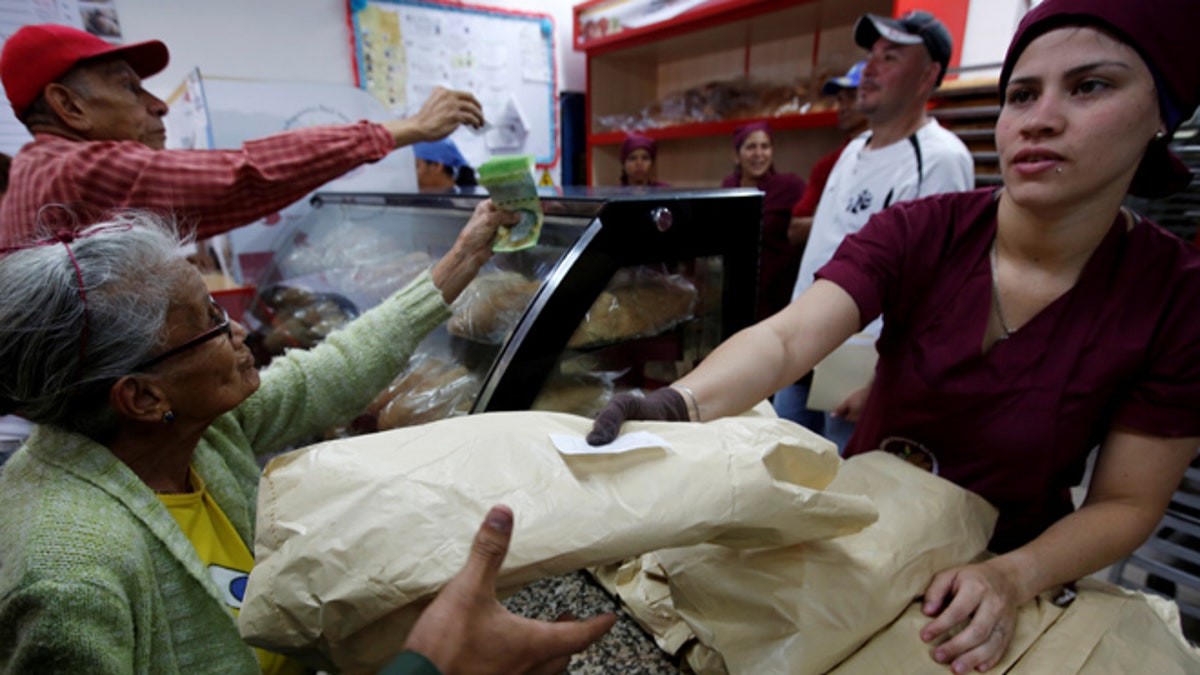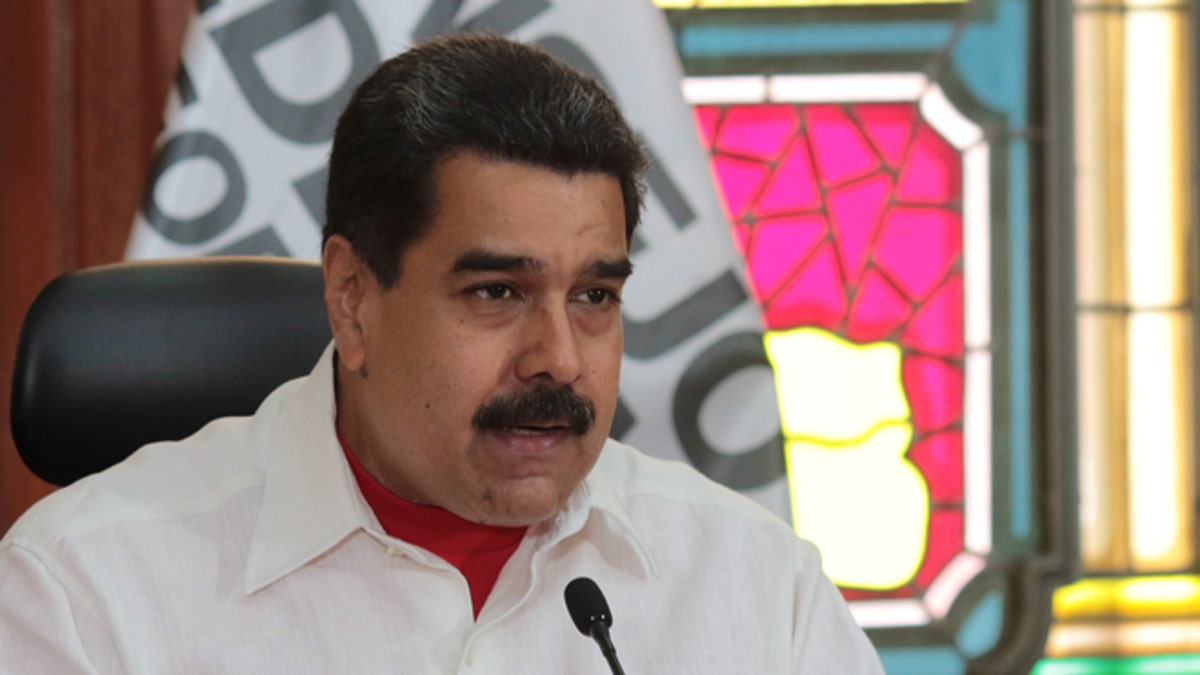
People buy bread at a state-run bakery in Caracas, Venezuela, June 25, 2016. (REUTERS/Mariana Baz)
According to Roman poet Juvenal, people hope for just two things: bread and circuses.
While there is no word on the circus, Venezuela’s beleaguered government is demanding that bakers at least give the people bread.
The socialist government of President Nicolás Maduro threatened earlier this week to expropriate bakeries in Caracas that fail to adhere to new regulations aimed at tackling widespread bread shortages.
Industry spokespersons, though, said it is physically impossible to abide by the new rules and that if the government expropriates the city’s 709 bakeries some 7,000 jobs would be at risk.
Venezuela does not produce its own wheat and instead relies on imports, which it sends to mills where it is ground into flour and then distributed to bakeries. The new regulations, which come on top of existing price controls and foreign exchange controls, require that 90 percent of flour must be used to bake bread and only 10 percent can be used for pastries and cakes.
The government also demanded that bakers must have a constant supply of bread throughout the day and hold over bread from the previous day for sale the next day.
The government accused bakeries of trying to maximize their profits – and in turn creating the bread shortages and long queues – by baking pastries rather than simple baguette-style bread. While the price of baguettes and French-style breads are controlled by Venezuela’s government, croissants and other sweet baked goods can be sold at higher prices.
"Speculators who hide the bread from the people will face the weight of the law,” Maduro said, according to the BBC. "They're going to pay, I swear. Those responsible for the bread war are going to pay and they better not complain that it was a political persecution.”
The national baker's federation, Fevipan, argues it cannot produce more bread unless its members are given more flour and added that 80 percent of bakeries had "zero inventory," while the remaining bakeries had only received 10 percent of the monthly supplies.
"When there's flour, we sell bread, but they only send it every 15 or 20 days," a worker in a Caracas bakery told the Agence France-Presse. "We are given 20 sacks and normally we'd need eight a day.”

Venezuela's President Nicolás Maduro speaks during a meeting with governors in Caracas, Venezuela February 14, 2017. (Miraflores Palace/Handout via REUTERS)
Víctor Maldonado, executive director of the Chamber of Commerce, Industry and Services of Caracas, said that last year alone the government’s policy of nationalizing industries resulted in a loss of 700,000 jobs as 30,000 companies closed.
Of Venezuela’s 800,000 companies operating before Chávez came to power in 1999, there are only 230,000 left, which means at least 570,000 went bankrupt, according to the PanAm Post.
Home to the world’s largest oil reserves, Venezuela was for decades an economic leader in the western hemisphere and, despite a massive gap between rich and poor, was a major destination for neighboring Colombians and other Latin Americans fleeing their less prosperous and more troubled homelands.
But in 1999 with the rise to power of late leader Hugo Chávez – whose socialist policies endeared him to the poor, but also set up an unsustainable system of state spending – Venezuela’s economy began to creep toward a crisis.
The situation has been exacerbated by Chávez’s successor, Nicolás Maduro, who took power in 2013. The government’s practice of siphoning off revenue from the national oil company for social programs meant the country’s once-mighty the oil industry could not make even minimal capital expenditures. Shortly after Chávez took over, the economy began contracting. The 2015 plunge of oil prices exacerbated the problem and left the government without adequate funds to import basic goods such as food and medicines, creating acute shortages and stirring anger toward Maduro.
Adding to the overall misery are a drastic rise in violent crime – especially in the capital city of Caracas – rolling blackouts and widespread and often times bloody protests against the government. There have been casualties and deaths on both sides of the protests and accusations from the international community of human rights abuses and political oppression.
